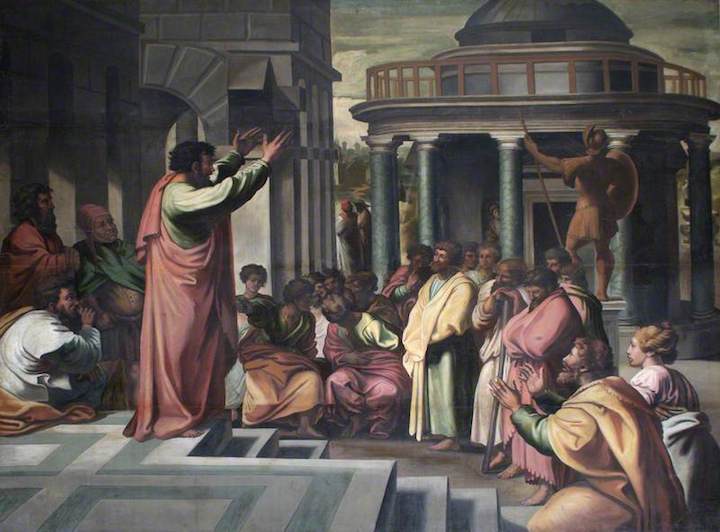Those who believe that the right to life is a fundamental human right have experienced two major defeats on two continents in less than a month. On May 25, two-thirds of Ireland’s population voted to strike down a constitutional amendment protecting the right to life, paving the way for what the Irish government has promised will be one of Europe’s most aggressively pro-abortion regimes. Then last week Argentina’s Congress voted by a 129-125 margin to legalize abortion up through the fourteenth week of pregnancy (for the bill to become law, it needs to pass the Chamber of Deputies and be signed by the nation’s president).
It is clear that pro-lifers are losing the battle to save unborn human life. To emerge victorious in the long run, we need to create a social consensus that the unborn deserve the right to live, a consensus transcending political and religious divides.
The recent anti-life Irish debacle has been often presented as more evidence of Ireland’s rapid retreat from its Catholic roots since the 1990s. In Argentina, there is still hope that the Chamber of Deputies, more conservative than the Congress, might stop the legalization of abortion. But even if it does there is a strong probability that it will be an ephemeral victory: polling shows that 60 percent of Argentines support the liberal abortion bill, almost twice as many as those who oppose it (34 percent).
Furthermore, in Argentina, as in Europe or North America, pro-life forces are very closely associated with Catholicism. And Argentina is one of Latin America’s least religious countries. Thus an Irish-style anti-Catholic, anti-life popular rebellion there seems very likely in the not too distant future.
Internationally, the greatest weakness of the pro-life cause is its close association with Christianity and the political Right. It’s not a bad thing, of course, that churches – Catholic, Orthodox, and some Protestants (along with Orthodox Jews and some Muslims) – stand at the forefront of the battle for life. On the contrary, Christianity is once again showing evidence of its rejection of the Zeitgeist in favor of timeless values, just as it did in 1537 when slavery was a common practice during the European colonization of the Americas and Pope Paul III issued a bull prescribing excommunication for that odious practice.
Rather, the problem rests in the fact that in a pluralistic democracy, no party or leader will permanently rule. Helmut Kohl was the West German chancellor for sixteen years, but even his grip on power eventually ended. I was happy when President Trump rescinded the Mexico City policy and enacted other pro-life policies. But Trump too won’t last forever.
In the United States and in many countries, someone’s stance on abortion is strongly tied to political affiliation and religion. In recent decades, this has become even more pronounced. The number of pro-life Democrats in Congress, for example, is in the single digits today, compared to more than 100 in the 1970s. For pro-life legislation to be irreversible, a certain consensus has to be created.

To do that, we need to reach out to so-called people of good will. We need to start on a grassroots level and explain to our non-conservative and non-Christian friends and family why we are pro-life. The pro-life movement may not have the political clout or generous financing of Planned Parenthood or George Soros’ Open Society Foundations. But we have a much more powerful weapon: the truth.
With advances in science, technology, and medicine, we know that the unborn child is not a clump of cells. The embryo’s brainwaves are detectable just six weeks after conception, which is when abortion is legal in almost all Western countries.
Intellectually honest people, who adhere to Socrates’ advice to follow the evidence wherever it leads, will be compelled by the irresistible logic that the unborn child is human and thus deserves legal protection, regardless of which side of the political aisle they are on, or what God or gods, if any, they believe in.
While Hinduism is not absolute in its opposition to abortion (as evidenced by India’s extremely permissive abortion legislation, allowing the procedure through twenty-four weeks in some circumstances), Mahatma Gandhi, a Hindu turned off by the hypocrisy of the Christians who had colonized his country, said that to him it was “clear as daylight that abortion would be a crime.”
The late Nat Hentoff, a music critic for the Village Voice, hardly a hotbed of social conservatism, was a libertarian Jewish atheist. Yet as someone intellectually honest, he saw the evil of abortion, which he actively opposed. There are many minds that, like Gandhi or Hentoff, are in other respects politically or religiously on different planets than Christians, yet they have the potential to see abortion for what it is – if we inform them.
The more such people there will be, the more pressure there will be on policymakers and on society to condemn abortion as a violation of basic human rights.
Imagine someone saying, “Personally, I’m opposed to human trafficking, but it’s better if it’s regulated instead of having it happen illegally and unsafely. And the government shouldn’t pry into the trafficker’s personal business. Instead, they should let him be an adult and make his own decisions.”
Chances are, you’ve never heard such silly sophistry from anyone’s mouth. Many people, however, make very similar statements about the killing of unborn humans – humans with brains, spinal cords, and fingerprints, who can feel pain and in some cases are capable of living outside their mothers’ wombs.
The recent Irish catastrophe and developing Argentinean tragedy show that we must work to create a society in which abortion is seen as being just as unacceptable as human trafficking, and we should preach not to the converted, but to those who, because of their ideas on politics or religion, are our strange bedfellows.
*Image: St. Paul Preaching at Athens by Raphael (Raffaello Sanzio da Urbino), c. 1515 [Ashmolean Museum of Art and Architecture, Oxford, England]















